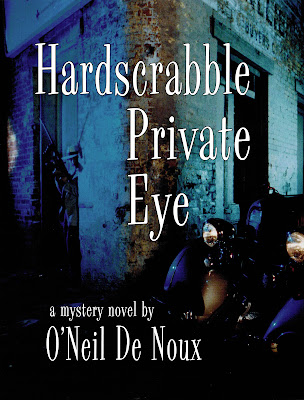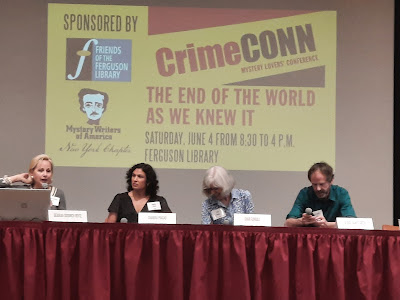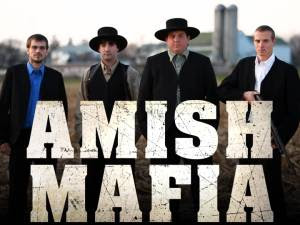Evil begins when you begin to treat people as things— (Terry Pratchett, I Shall Wear Midnight)
In the wake of the tragedy at Uvalde, I am seriously disheartened (and thoroughly pissed, I might add) by the number of people whose first reaction has been some variation of, "YOU'RE NOT TOUCHING MY GUNS!" Cold dead hands, and all that.
“It takes a monster to kill children. But to watch monsters kill children again and again and do nothing isn’t just insanity—it’s inhumanity.” — Amanda Gorman
The other major reaction is "We already have the most regulated guns in the world!" which is hogwash, and/or "We have lots of laws, we just need to enforce them!"
But do we really have such strict laws? I thought I'd check into it, and the short answer is "No. No, we don't."
BACKGROUND CHECKS
Let's start off with background checks. 88% of Americans support enhanced background checks. Our not-so-friendly 2nd Amendment absolutists tell us we already have that. So what kind of background checks do we have right now?
The 1993 Brady Bill "prohibits certain persons from shipping or transporting any firearm in interstate or foreign commerce, or receiving any firearm which has been shipped or transported in interstate or foreign commerce, or possessing any firearm in or affecting commerce. These prohibitions apply to any person who:
- Has been convicted in any court of a crime punishable by imprisonment for a term exceeding one year;
- Is a fugitive from justice;
- Is an unlawful user of or addicted to any controlled substance;
- Has been adjudicated as a mental defective or committed to a mental institution;
- Is an alien illegally or unlawfully in the United States;
- Has been discharged from the Armed Forces under dishonorable conditions;
- Having been a citizen of the United States, has renounced U.S. citizenship;
- Is subject to a court order that restrains the person from harassing, stalking, or threatening an intimate partner or child of such intimate partner, or;
- Has been convicted in any court of a misdemeanor crime of domestic violence.
(Some people bring up the NICS Improvement Amendments Act of 2007, but it was repealed by the Trump administration in 2017, so I'm not even going to get into that.)
Anyway, the Brady Bill sounds really good, doesn't it? Except there are loopholes. LOTS of loopholes:
The Reporting Hole:
Some places don't forward the records.
State and local agencies are not required by law to report criminal records to the FBI. In most cases, local agencies don’t have a system in place for submitting the names of people with restraining orders or domestic violence convictions to the National Instant Criminal Background Check System (NICS) — so those names simply aren’t entered.
And, even when reported, well: Just because someone’s name is not entered in NICS doesn’t necessarily mean that a federal gun background check reviewer wouldn’t raise a red flag at the point of sale. That’s because background checkers also check two other databases, the National Crime Information Center (NCIC) and the Interstate Identification Index, which contain more arrest records. But those records aren’t always complete, and may require further investigation by the reviewer. For example, they don’t always indicate whether an arrest was followed by a conviction. Or a court record might not specify the relationship between perpetrator and victim. If tracking down that information takes more than 72 hours, a gun dealer can make the sale anyway. (The Trace) (my emphasis added)
And while Federal agencies - like the military - are required by law to report them, in 2014 the Inspector General found that the Defense Department was still not reporting them. 10 years of not reporting. In 2015, they still weren't reporting 30% of them. And the service branches do not have a dedicated office that handles such notifications (NYTimes).
NOTE: Under the military code, there is no such charge as domestic violence.
Also, various city, county, and state law enforcement agencies often do not report convictions for domestic violence, stalking, harrassing, etc., specifically because they would take away the right to carry a firearm, and guess what a lot of law enforcement do every day? Yep. So they're off the grid, too.
The National Database Loophole:
There is no national database of who's bought what gun(s). And that's ALWAYS been opposed by the NRA.
Meanwhile, many of anti-abortion states want to set up a state / national database of women's menstrual periods, via tapping Planned Parenthood information (which Missouri actually has already done LINK), and various smart devices and hospital records (just in case you got a D&C for a miscarriage and not an abortion, you're going to have to prove it). No national gun registry, but by God, let's register all women's most intimate health cycles. Next thing you know, I'll have to have a doctor's notarized statement that I'm past menopause to cross state lines - oh, yeah, they're working on laws to stop pregnant women from doing exactly that.
Call me cynical, but I get the feeling that the GOP considers all gunowners as potential heroes, but all women as potential criminals - and legislate accordingly.
The Gun Show Loophole:
Only gun dealers have to do background checks. Private sellers don't have to do any background checks at all, whether at gun shows, parking lots, neighbors, Internet, private ads, etc. And your relatives can buy you any gun(s) they want.

The Who You Are Loophole:
The Boyfriend Loophole - Federal domestic violence laws don’t include people who never lived with, or had a child with, the perpetrator. Known as the “boyfriend loophole,” the omission allows many abusers to buy guns even if there’s been a violent assault that leads to a criminal conviction. About a third of states have laws that aim to bridge this gap, but that leaves 2/3rds off the grid.
The Sibling Loophole - Under
federal law, the abuse of a sibling doesn’t trigger a gun ban.
The Stalker Loophole - Stalkers convicted of misdemeanor crimes are not prohibited by federal law from buying or possessing guns. According to
a 1999 study, 76 percent of women who were murdered by intimate partners were first stalked by their killer. (
The Trace)
GHOST GUNS:
"Domestic terrorists and racially motivated extremists are increasingly arming themselves with homemade, untraceable “ghost guns,” a threat that is now a top public safety concern for law enforcement, according to a leaked U.S. government report.
"The six-page
report by the Joint Counterterrorism Assessment Team — a coalition of federal law enforcement and intelligence agencies, including the FBI — warns that such extremist groups are gravitating to guns and gun accessories that can be made using do-it-yourself kits or 3D printers.
Ghost guns can be acquired without background checks and their lack of serial numbers makes them nearly impossible to trace, complicating criminal investigations." (
The Trace)
73% of Americans support a plan to enforce safety measures on the sale and procurement of ghost guns.
NRA Stance: "The Constitution does not authorize the federal government to prevent you from making your own firearm. This a fact that has been recognized for 200+ years." (
Fox)
My Note: Got news for you, NRA. Our Founding Fathers weren't sitting around making their own muzzle-loaders and dueling pistols. They bought them, like everyone else did.
AGE LIMITS ON GUNS:
72% of Americans support the idea of raising the legal age to buy a gun from 18 to 21 years old.
BUT: "Federal law
allows people as young as 18 to buy long guns, including rifles and shotguns, and only a handful of states have enacted laws raising the minimum age to 21. There’s no federal minimum age for the possession of long guns, meaning it’s legal to give one to a minor in more than half the country....
"44 states that allow 18-year-olds to buy long guns, including semiautomatic rifles, according to
Giffords Law Center, which tracks state and federal gun laws. Only six states have raised their long gun purchasing age to 21: California, Florida, Hawaii, Illinois, Vermont, and Washington State. Americans are meanwhile not allowed to purchase alcohol or cigarettes until they are 21." (
The Trace)
Informational: Since Columbine, there have been 244 school shootings, with more than 311,000 students involved. 185 children, educators and other people have been killed in assaults, and another 369 have been injured.
7 in 10 of the shooters were under 18, which means some adult gave them at least one weapon, or access to it. (
Wapo) and (
AP)
Also, there are no federal restrictions on how many guns you can own. Thus, Texas has no restrictions on how many guns you can own, but it does limit ownership of sex toys to six (
section 43.23 of Texas’ penal code).
ASSAULT WEAPONS:
The Federal Assault Weapons Ban was a ten-year ban enacted in 1994, which included a prohibition on the manufacture for civilian use of certain semi-automatic firearms that were defined as assault weapons as well as certain ammunition magazines that were defined as large capacity. When it expired in 2004, attempts were made to renew it, but they all failed. (
Wikipedia)
When the assault weapons ban was lifted in 2004, a there were 400,000 AR-15 style rifles in America at that time. Today, there are at least 20 million.
Banning assault-style weapons: Sixty-seven percent strongly or somewhat support; 25% strongly or somewhat oppose. (
Politico)
OPEN / CONCEALED CARRY:
25 states allow permitless concealed carry.
39 states allow permitless open carry.
RED FLAG LAWS:
Red Flag Laws permit police or family members to petition a state court to order the temporary removal of firearms from a person who may present a danger to others or themselves. You would think this would be an obvious gun safety practice - Gov. Abbott (TX) and the entire GOP have been making major speeches about dealing with "the mental health crisis" in this country.
Meanwhile, Gov. Abbott and the Texas Legislature passed a law eliminating ANY permit requirement for guns — and then slashed $211 million from Texas’s mental health budget.
So far only 19 states have some kind of Red Flag law in place, but Oklahoma has an anti-red flag law. The law specifically "prohibits the state or any city, county or political subdivision from enacting red flag laws." And South Dakota's own Governor Kristi Noem proudly announced:
"In 2020,
I blocked bills proposing unconstitutional red-flag laws to strip citizens of their right to bear arms. The following year, I signed “stand your ground” legislation, and I further protected your right to purchase guns and ammo during emergency declarations. This year, I repealed all concealed carry permit fees for state residents, which is necessary to remain in good legal standing in other states with stricter gun laws. It won’t cost you a penny to exercise your 2nd Amendment rights." (
LINK) (Emphasis added)
NOTE: BTW, "Stand Your Ground" legislation, as I have said before, specifically denies people prosecutorial immunity under SYG if “[t]he person against whom the defensive force is used or threatened has the right to be in or is a lawful resident of the dwelling, [or] residence . . . such as an owner, lessee, or titleholder, and there is not an injunction for protection from domestic violence or a written pretrial supervision of no contact order against that person.” I.e., a victim of domestic abuse can't claim SYG if it's her husband. Or her father.
So welcome to a major Catch-22: Federal Background Check laws don't cover boyfriends or stalkers or siblings, and SYG doesn't cover spouses or fathers. Ladies,
you're screwed. (Read more at
Treason's True Bed.)
AND FINALLY, A SHORT HISTORY OF THE NRA:
Up until the 1970s the NRA actually opposed private ownership of guns.
Karl Frederick, NRA president in 1934, during the congressional NFA (National Firearms Act) hearings testified "I have never believed in the general practice of carrying weapons. I seldom carry one. ... I do not believe in the general promiscuous toting of guns. I think it should be sharply restricted and only under licenses." The NRA supported both the National Firearms Act of 1934 and the Gun Control Act of 1968 (enacted after the assassinations of RFK and MLK Jr.), which created a system to federally license gun dealers and established restrictions on particular categories and classes of firearms.
NOTE: The 1967 California Mulford Act, which prohibited open carry of loaded firearms, was a direct result of increasing gun ownership among black people, especially members of the Black Panthers. It was supported 100% by the NRA. Governor Ronald Reagan signed the bill, and said he saw "no reason why on the street today a citizen should be carrying loaded weapons" and that guns were a "ridiculous way to solve problems that have to be solved among people of good will." In a later press conference, Reagan added that the Mulford Act "would work no hardship on the honest citizen." (HISTORY) and (WIKIPEDIA)
And then in the late 1970s a faction of the NRA decided to go political, heavily backing the GOP and promoting the idea of a personal right to own private weapons. It took a while, but in 2008 District of Columbia v. Heller became the first Supreme Court case to decide whether the Second Amendment protects an individual right to keep and bear arms for self-defense or if the right was intended for state militias. They plumped for self-defense. (NRA)
There's a long 200+ year stretch between the Founding Fathers and the we must have the right to own every type of firearm and carry it wherever we want to at all times line.
Sigh…
From the Conservative Response Archives:
"As harsh as this sounds—your dead kids don't trump my Constitutional rights … We still have the Right to Bear Arms … Any feelings you have toward my rights being taken away from me, lose those." Joe Wurzelbacher, a/k/a Joe the Plumber, after the 2014 Isla Vista killings (killed 6, injured 14).
I guess he warned us where this was going. But there's no way on God's sweet green earth that I'm going to agree with it.
So, gun bans and confiscation? A disarmed, defenseless, and compliant population, whose security and freedom are simply dependent on the goodwill of others? Is that where you'd like to take us?
(1) See the Reagan quote above and (2) Actually, yes, I would like to see us dependent on the goodwill of others, the way we used to be not that long ago. And considering this was posted on a conservative Christian website, all I can say is his church is woefully poor at reading the Gospels.
A pencil can be an assault weapon.
But you can't kill as many with one as you can with an AR-15, can you?
"More than ever, we're held hostage by the pro-life American ethos: Life begins at conception and ends with a Second Amendment execution." — Dick Polman
What the hell has happened to us?



.jpg)
.jpg)


























